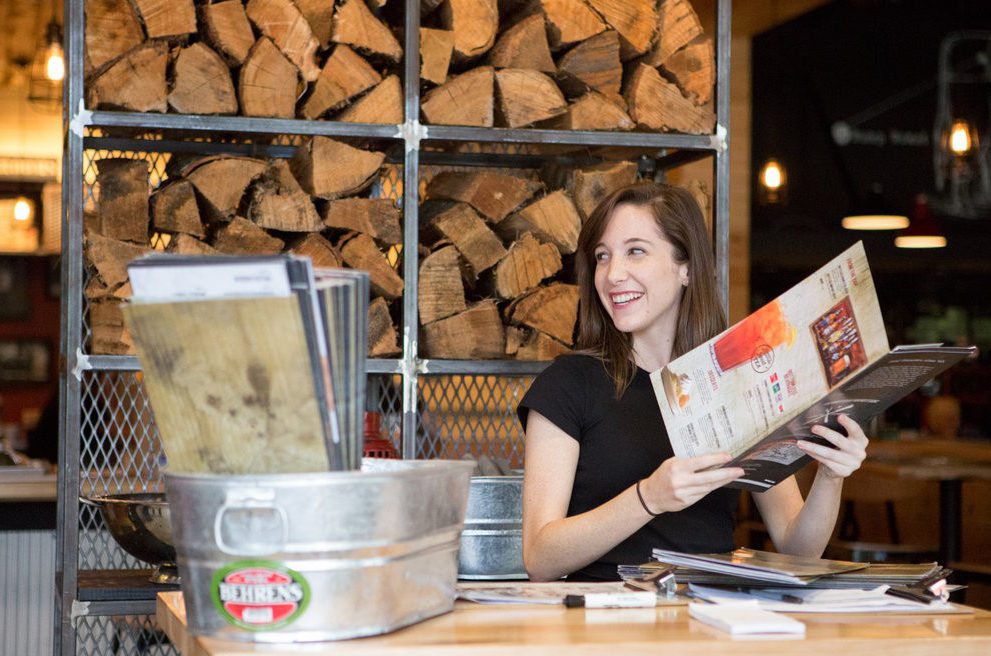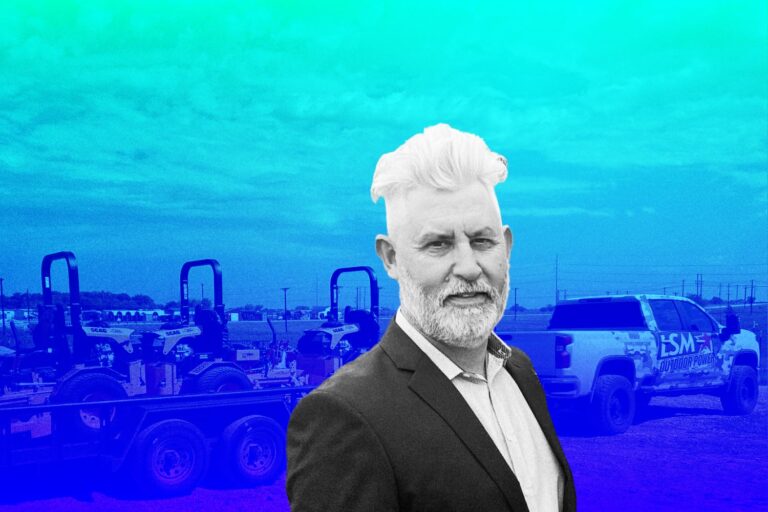The City of Orlando: From Breaking Ground to Breaking Business Records
When it comes to the big question of where to start your business, should you set your eyes on the most populous cities – such as New York or Los Angeles – to maximize your investment? Or, should you head towards the country’s capital, Washington D.C.? Beyond any doubt, where you start a business can make all the difference, which is why a plethora of business owners, from well-established CEOs to surging entrepreneurs, are looking to Orlando – the Florida city of over 280,000 people.
Landing the top spot amongst 100 large U.S. cities on the ranking by the financial website WalletHub across 19 key indicators of startup viability, the home of Walt Disney World stands as the one with the best conditions for launching a new business. So, which specific factors make Orlando an awesome place to “headquarter” your startup? What marks Orlando’s name as one of the most entrepreneurial cities for such aspiring business owners as you? Let’s read on to uncover!
#1. Wonderful Business-Friendly Climate
Well-recognized as one of ten “American Cities of the Future” by Foreign Direct Investment magazine, Orlando is cultivating a richly diverse professional landscape in a business-friendly climate, being anchored by major industries and fueled by an impressive talent pool, low tax structure as well as excellent quality of life.
The Most Economical Place to Set Up a Business
According to The Boyd Company, a New Jersey-based site selection firm, Orlando stands as the least expensive city in the nation for entrepreneurs to establish a startup. Besides, this city captures much attention from Forbes for its business-friendliness facets – in fact, Orlando has been continuously included in Forbes’ lists of the “best cities for minority entrepreneurs”, “best cities for job growth”, “best places for businesses and careers” and also one of “the next big boomtowns in the U.S.”
State Tax Competitiveness
With one of the nation’s most business-friendly tax codes, Florida, “housing” Orlando, landed the 4th rank on the Tax Foundation’s 2020 and 2021 State Business Climate Index — the only state in the Southeast to appear in the Top 10.
Not only does the state offer sales-and-use tax exemptions on a variety of power-related expenditures but it also offers the policies of tax breaks in targeted industries. Undoubtedly, these tax breaks do wonders for businesses, especially small businesses in the nascent stage, which include:
- No corporate income tax on limited partnerships or subchapter S-corporations
- No corporate franchise tax on capital stock
- No property tax on business inventories
- No state-level property tax
- No property tax on goods-in-transit for up to 180 days
- No sales-and-use tax on goods manufactured or produced in Florida for export outside the state
- No property tax on business inventories
- No state income tax–a great perk for your employees
Strong Commitment from Governmental Agencies of Orlando
There exists a myriad of programs by the City of Orlando’s Business Development Division committed to recruiting, retaining, and growing business. In addition to designing prompt, business-friendly customer service for building permits, business licenses, and on-site construction inspections, the City works with several other economic development organizations to maximize its impact in the community.

Furthermore, Orlando’s internationally accredited Economic Development Commission (EDC) ranks in the top 1 percent nationwide, making tremendous efforts to become the country’s preeminent economic development organization. Since 1977, it has successfully assisted thousands of companies locate or expand in Orlando. 176,750 jobs created, $9.5 billion in capital investment, 79.7 million square feet of office and industrial space – these figures speak volumes about the huge impact of Orlando EDC.
Another noteworthy Orlando-based agency is the Orange County Office of Economic Development that partners with dozens of nonprofit think tanks and industry leaders in continuous attempts to foster smart economic growth within the region. In 2013, the County funded early $1.1 million in economic development programs, including Innovation Way, a high-tech corridor that extends from UCF to Lake Nona Medical City and Orlando International Airport.
#2. Robust Workforce Resources
With over 30 post-secondary institutions – including the University of Central Florida, the second-largest university in the nation – and more than 87,000 college students poised to enter Orlando’s talent pipeline, your business, once located there, will be granted precious access to a strong and stable labor pool that excels across a number of industries.
With a huge labor force exceeding 1.2 million up to the statistics by the United States Department of Labor, Orlando stands among the nation’s fastest-growing employment markets. Fueled by a progressive, young workforce skilled in technology and innovation, such a Central Florida area is becoming an increasingly appealing destination for creative minds.

According to the recent report by the New York-based personal finance technology company SmartAsset, Orlando takes the top spot of 2020 tech destinations! Over the past decade, the Orlando-Kissimmee-Sanford Metro Area has witnessed tremendous growth, not the least of which from the development of the “High Tech Corridor,” a formidable area of higher education, private research institutions, and high-tech businesses stretching along Interstate 4.
Notably, there are more than 22,000 tech companies in “the Corridor” attracting Millennials nationwide. What’s more, the year 2019 saw the area’s job market to be the tightest in decades and was adding over 1,500 new residents weekly, which has led the metro area to be one of the fastest-growing in the nation.
Speaking of the region’s tech prospects, Orlando Mayor Buddy Dyer stated, “As a city, we continue to focus on growing and nurturing a strong tech and entrepreneurial community in Orlando.” “A perfect example of our commitment is Creative Village. Creative Village is anchored by the regional headquarters for Electronic Arts, Inc. (EA) and the UCF Downtown Valencia College campus alongside other high tech and creative companies. This type of partnership fuels our unique culture of collaboration, strengthen our tech talent pipeline, and increase Orlando’s reputation as a tech hub,” added Buddy Dyer.

The backbone of the corridor stems from the three major state universities in the Corridor — University of Florida (UF), University of Central Florida (UCF), and University of South Florida (USF) — promising to offer an on-going pipeline of high quality, experienced, home-grown talent whilst also attracting the brightest minds across the nation.
#3. Solid Infrastructure & Access
Should you wish to locate your “child” in place with easy access to just about anywhere, Orlando would turn to be your seamless option. In fact, the home of Walt Disney World boasts one of the nation’s best highway systems, an internationally acclaimed airport, commuter rail, deep-water ports as well as the world’s only trade zone that exchanges goods by air, land, sea, and space.
Airports
Orlando International Orlando’s business climate is strengthened by the presence of a world-class international airport which drives an annual economic impact of a staggering $26 billion. Nearby, other international and regional airports do exist, which provide additional options for travel and commerce. Then, let’s cast a glimpse over a few outstanding names.
- Orlando International Airport (MCO): This perennial favorite among business leaders and the traveling public accommodates 35 million passengers each year with nonstop service to 84 U.S. cities and 34 international destinations.
- Orlando Sanford International Airport (SFB): Located about 25 miles from downtown Orlando, Orlando Sanford International Airport serves 2 million passengers on an annual basis. Allegiant, its major airline, flies to dozens of destinations throughout North America.
- Orlando Executive Airport (ORL): If you are in the need of convenient access to all of Orlando’s major highways, major industrial and business centers, then Orlando Executive Airport is going to be your favorite choice, meeting your unique needs of either utilizing private or corporate-owned aircraft.
- MCO Intermodal Hub: Set to open in the year 2018, MCO’s intermodal hub provides business travelers seamless connectivity to SunRail, All Aboard Florida, and a proposed light rail system to nearby attractions.
- Kissimmee Gateway Airport (ISM): Located in the northern Osceola County, Kissimmee Gateway Airport accommodates general aviation air service 24 hours a day with four fixed-based operators and two paved runways.
- Daytona Beach (DAB) and Melbourne (MLB): Based on Central Florida’s Atlantic Coast, Daytona Beach International Airport and Melbourne International Airport present additional handy options for travelers and commerce. Both of these airports are served by Delta and U.S. Airways, along with a plethora of freight and charter airlines.
Seaports
Whilst there are no ocean vessels from Orlando proper, entrepreneurs are close enough to virtually hear the sounds of the industry at some of the world’s finest seaports. With major ports on the Atlantic Ocean and the Gulf of Mexico, Central Florida is deemed as the prime destination for international shipping. Actually, Port Canaveral boasts the world’s only “quadramodal” foreign trade zone, accommodating cargo by sea, land, air, and even spac
- Atlantic Ocean: Port Canaveral: Emerging as the world’s only “quadramodal” foreign trade zone, this major deep-water port of entry located 50 miles east of Orlando features eleven deep-water cargo piers, six cruise terminals, and the shortest direct entry on the East Coast.
- Intracoastal Waterway: Port of Sanford: This Seminole County port provides 250,000 square feet of industrial and distribution space, a 350-foot main pier and 100-foot bulk unloading pier, and river barge access via St. Johns River to Lake Monroe.
- Gulf of Mexico: Port of Tampa: Located 70 miles west of Orlando, Florida’s largest cargo tonnage port operates primarily as a bulk commodities port serving Foreign Trade Zone 79.
- Gulf of Mexico: Port Manatee: Within 35 miles south of Tampa, this is the closest U.S. deepwater seaport to Panama Canal and serves Foreign Trade Zone 169. Additionally, Port Manatee also offers port-owned railroad interchanging with the CSX and easy highway connectivity to Central Florida.
Rail Transportation

In addition to air and sea transportation, Orlando is making a major investment in rail networks that will shape the region’s future. Commuters, tourists, air passengers, and especially business travelers stand to benefit from All Aboard Florida, SunRail, and an intermodal hub at Orlando International Airport.
- All Aboard Florida Setting to Offer High-Speed Rail: All Aboard Florida is working towards the mission to connect Central and South Florida through a privately owned and operated passenger train with stops in Orlando, West Palm Beach, Fort Lauderdale, and Miami.
- SunRail Shuttling Commuters Along the I-4 Corridor: A undeniably imperative alternative to rush-hour traffic, the SunRail commuter train runs mostly adjacent to Interstate 4 with 12 stops along a 32-mile route. Its expansion plans call for the rail to stretch from DeLand to the Poinciana area of Osceola County.
- Intermodal Transportation Facility possibly connecting Rail and Air Travelers: With a view to facilitating the smooth transfer of passengers between planes and rail, Orlando International Airport established a $683 million intermodal transportation facility set to open in 2018.
#4. Sustainable Community
In addition to a favorable business climate, robust labor force, together with solid infrastructure and access, sustainability in Orlando is strong “plus” for businesses – actually, this facet performs an increasingly critical role within the modern landscape. The region is home to many forward-thinking initiatives, which include:
Green Works Orlando
Launched by City Mayor Buddy Dyer in 2007, Green Works Orlando works towards a vision to transform Orlando into one of the most environmentally friendly, economically and socially vibrant communities in the nation. Leveraging the city’s regional leadership position, Green Works Orlando has made great strides in forming long-term partnerships and sharing resources that expedite positive environmental changes in the everyday workings of government and private business. When it comes to Green Works’ operation such a sustainability-driven organization did focus on these areas as follows:
- Energy/green buildings
- Food systems
- Green economy
- Livability
- Solid waste
- Transportation
- Water
Orange County: “Our Home for Life”

Under the direction of County Mayor Teresa Jacobs, the Orange County government has implemented and embraced an extensive sustainability plan with a view to shaping Orlando as a sustainable and livable community, since 2013. Known as “Our Home for Life,” the plan addresses population growth in a way that enhances the quality of life for current and future generations. The plan outlines specific incremental and transformative changes for the County through 2040. Speaking of focus areas of “Our Home for Life”, there exist some that are worth noting:
- Natural resources
- Arts & culture
- Civic engagement
- Community
- Education
- Built environment
- Mobility
On-Campus Sustainability and Energy Management
Besides offering a talented pool of labor, the University of Central Florida is well-acclaimed as a powerful leader within the sphere of sustainability and energy management. A dedicated team of students, faculty together with University staff advance a more sustainable campus through conservation, efficiencies, and renewable energy. Let’s take a quick look over a handful of UCF sustainability projects:
- Energy-efficient buildings
- Solar photovoltaic systems
- Alternative fuels for fleet vehicles
- Biodiverse landscapes that minimize water use
- Community outreach
Furthermore, MegaWatt Ventures is a program of the UCF Venture Accelerator. This venture manifests UCF’s serious efforts to strengthens “innovation ecosystems” that accelerate the movement of cutting-edge energy technologies from university laboratories into the market. As stated by Thomas O’Neal, Associate Vice President of UCF Office of Innovation and Entrepreneurship, “MegaWatt Ventures is an important contributor to the growing recognition of Orlando as a global clean energy innovation hub.”
The Bottom Line
“Every city wants your business, but Orlando brings the best deal to the table.” – OUC—”The Reliable One”
“Boasting” from skilled, specialized labor force, robust capital resources to amble sustainability-focused initiatives and especially propitious business climates, the home of Walt Disney World is undoubtedly an ideal place to realize your entrepreneurial dreams. From breaking ground to breaking new sales records, business success is more affordable and achievable in “the City Beautiful” lying in the heart of the Sunshine State.









